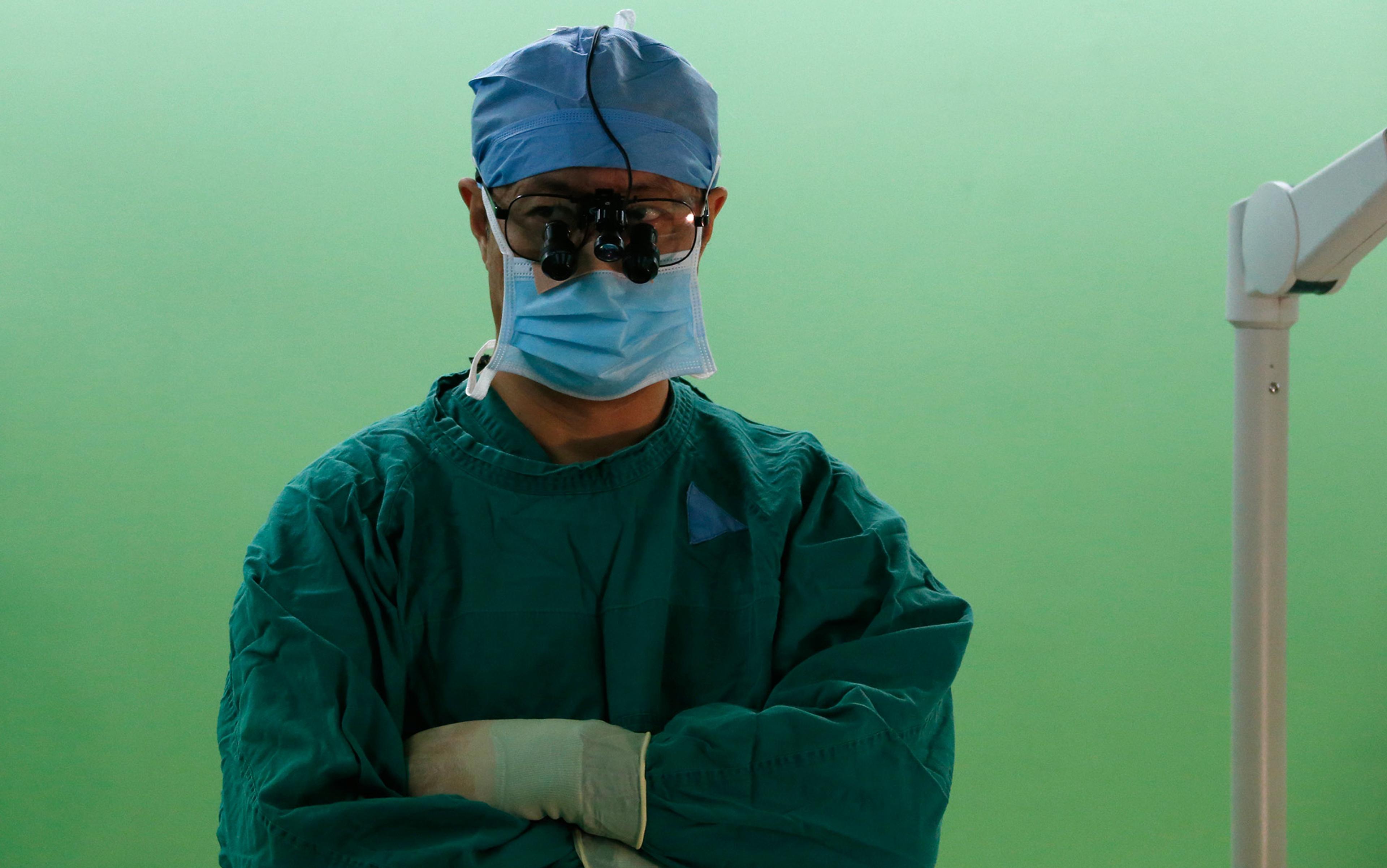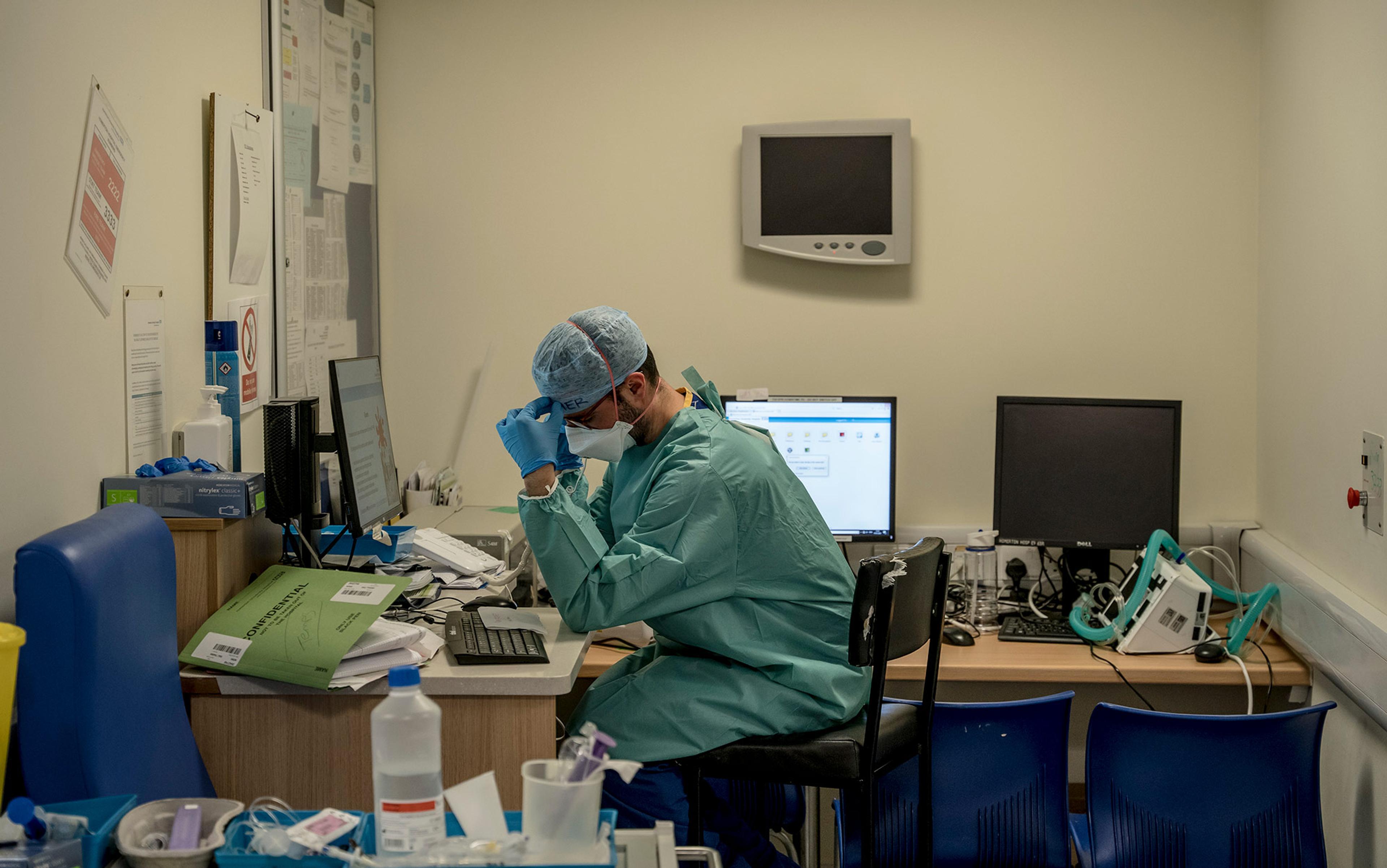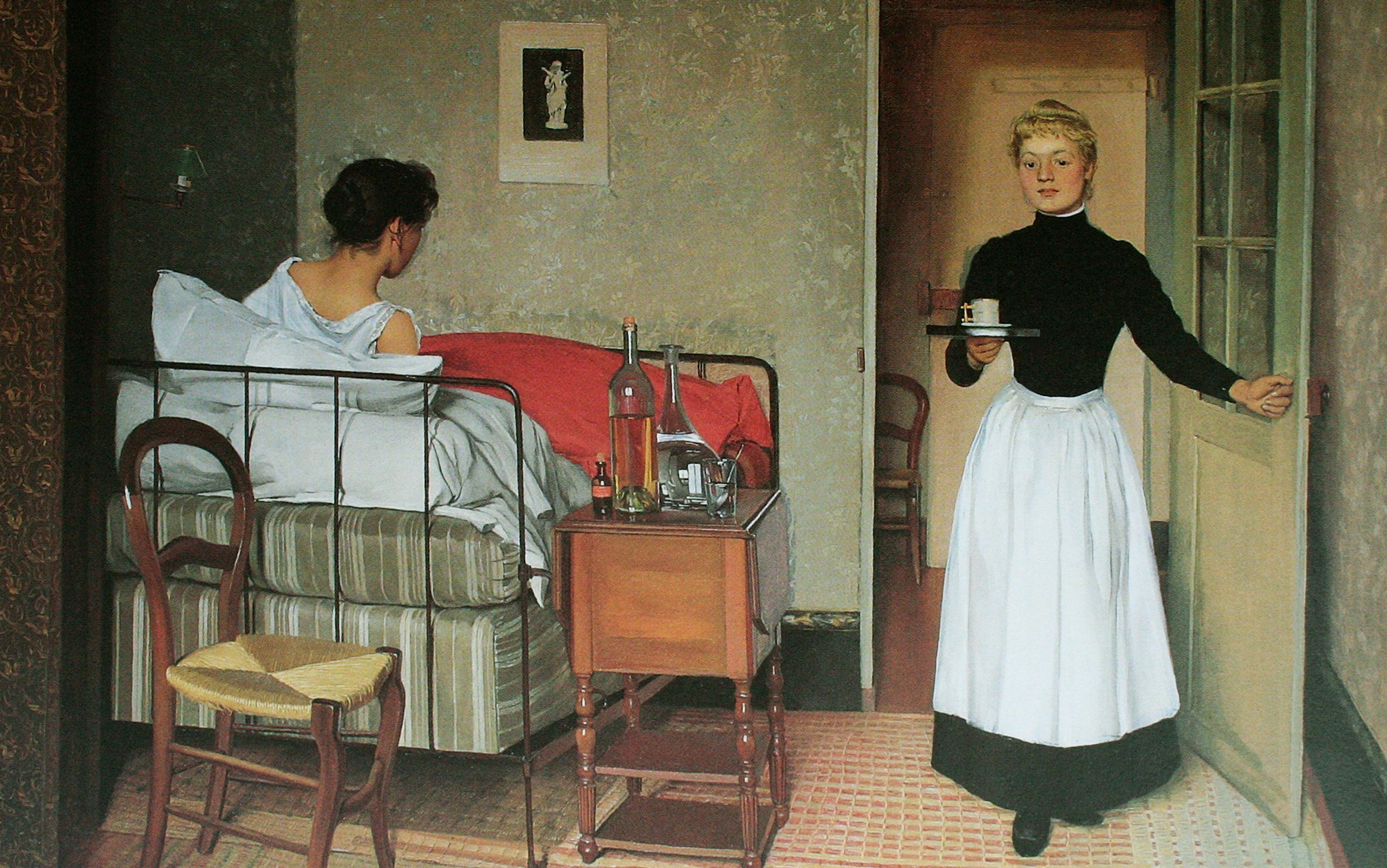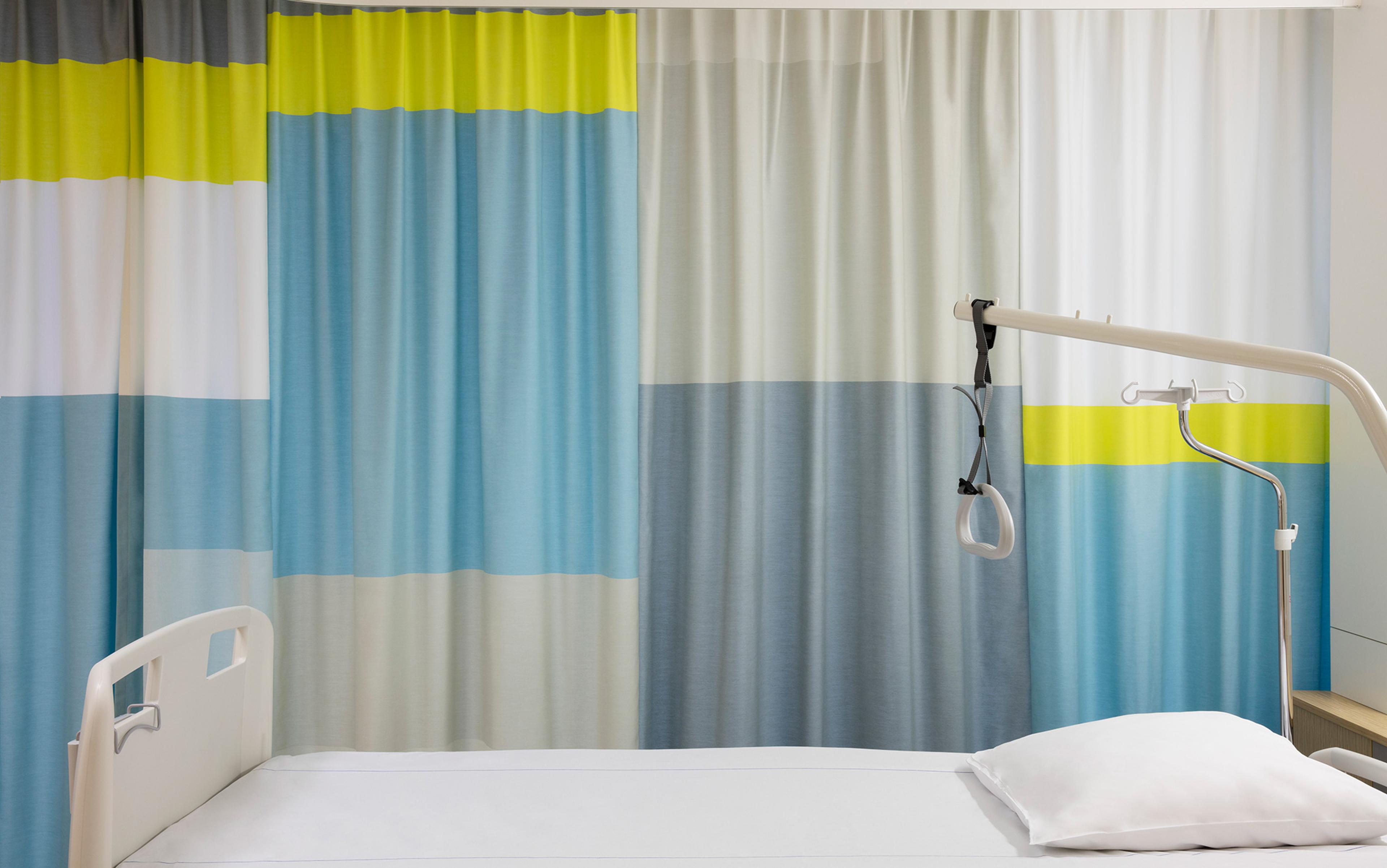He comes to the operating room late, greets no one, and berates the nurse for not setting up the stepstools the way he likes. He tells the resident she doesn’t know the anatomy and sighs when she adjusts her grip on a surgical tool. He slaps the hand of the medical student when she reaches for the retractor to pull back skin for a clearer view. The operating room is tense for hours. ‘I need a different clamp,’ he says at one point, ‘this one is too dull.’ ‘I’m on it,’ says the scrub nurse. ‘You’re not,’ he retorts, ‘or else it would already be in my hand.’ All of us adorned in blue scrubs and surgical caps stand on edge, braced against the next wrathful outburst. ‘I want to see the tip of my blades,’ the resident explains, staring intently at the monitors where her laparoscopic instruments have not quite come into view. ‘Just cut,’ the lead surgeon barks at her. By the end of the operation, the intern’s hand shakes as he sutures the wounds closed, to the beat of the running condescending commentary on his halting speed and less-than-perfect stitches.
One doesn’t have to work in a hospital long to experience or observe some form of disrespect. This is hardly a secret. The bullying culture of medicine has been widely written about and portrayed in popular media. In one study, published in 2012 and conducted over the course of 13 years at the David Geffen School of Medicine at the University of California, Los Angeles, more than 50 per cent of medical students across the US said they experienced some form of mistreatment. Behind closed doors, we share advice on whom to hang around and whom to avoid.
At the start of my third year of medical school, when we would finally enter the hospital wards, we had an orientation: ‘Wear a raincoat,’ the doctor standing at the podium advised. I could expect to get rained on.
For the most part, I’ve been pleasantly surprised. The majority of doctors, nurses, and other health care professionals I’ve worked with have been courteous and respectful: strong teachers and compassionate caregivers. I have met colleagues whom I would feel honoured to work alongside in the future and mentors whom I’d want to treat my own family should they become ill. I’ve been amazed by residents who work 24-hour shifts and somehow still have the energy to teach those who do not yet know as much as they do. I both admire them and am grateful for them.
But there is a reason those orientation warnings exist. The surgeon who chides the nurse for her inability to be in two places at once? The nurse who snaps at the medical student for reading the patient’s chart the same moment she wants to write it in? They are a substantial, troubling minority, and they can set the mood for the rest.
Most of my friends in medicine have witnessed flagrant episodes of hospital bullying and have juicy tales to tell. But medical disrespect is usually far less dramatic, dished out in the form of ‘micro-aggressions’: exasperated sighs, a sarcastic tone, the dismissal of alternative ideas. It’s the subtle put-downs about a trainee’s competence that erode confidence; the public shaming for an incorrect answer on rounds; or the denial of simple privileges such as taking a chair or reading a chart. It’s the psychological effect of being called by your rank instead of your name, or having it made clear that your presence is a burden instead of a help. It’s being ignored. It’s other team members looking on when the disrespect occurs, afraid to challenge it and defend those lower on the totem pole. These are the acts that affect our state of mind in small but cumulative ways. This is the stuff that creates a culture.
You learn to deal. This is how it is. That’s the system. It’s ingrained. You excuse bad behaviour with the platitude: ‘That’s just the way (s)he is.’ You appreciate from your elders that it could be much worse – at least they can’t throw scalpels at you anymore. You make allies and whisper in solidarity with those in the trenches alongside you. You train yourself, just as they advised you on your very first day, to wear a raincoat. You start to wear it, and it becomes thicker as your training progresses. You add boots and an umbrella. Then, as you get better and more confident, perhaps you become impatient with the inevitable lack of expertise in the new trainees. Maybe in a few years, you start to rain on others.
We’ve known for years that entering the ranks of medicine means developing a thick skin to criticism and being made to feel small. For a long time there was a mystique that this culture held everyone to high standards, and it was the price we paid for the care we got. What is disturbing is the increasing recognition that bullies are not only bad people to be around – they’re bad doctors, too.
Get admitted to any hospital, and you might notice that no longer is a single doctor on your case. Contrary to popular television scriptwriting, treating patients is rarely about the inspired intervention of one brilliant physician or surgeon. Rather, we work more like an ecosystem, with every organism in the hierarchy contributing to the whole. In the old days, interns straight out of medical school would man the hospital wards, see very sick patients, and learn to become doctors by practising on them. They’d experiment, they’d figure out stuff, and they’d grow. And sometimes, when they were wrong, patients would pay the price.
Today, we still recognise that newly minted doctors must be trained, but there are more checks and balances in place for patient safety. Interns still see very sick patients and propose plans of action, but those plans are run by more experienced doctors before being implemented. In teaching hospitals, we meet on team rounds daily, discuss updates on patients, and talk through goals for the day. Questions get run by senior residents, and senior residents run things they’re unsure of by attending physicians. Whenever there is uncertainty, the question works its way up the hierarchy. At the same time, decision-making reports back down, so that the newest of the doctors carry out the plans and learn by doing.
So far, so good – this is a better system than it used to be. But it is also much more dependent on the communication and relationships among different members of the team. Now, enter the culture of disrespect. Suppose an attending physician makes withering critiques or unreasonable requests. A resident, hoping to avoid such abuse, slowly but surely starts to hold back. She holds back some questions for fear of burdening and, under the constant stress of being scolded, becomes immersed in details of efficiency. Whether she intends it or not, she gives off vibes of unavailability, spending hours hunched over a computer in the physician’s conference room cranking out progress notes and scheduling patient appointments. Meanwhile, a patient starts to take a turn for the worse, but it’s not completely clear-cut – his vitals are just a bit off, his belly seems distended, and he complains of abdominal pain but is also known to the team as someone who complains. The nurse hesitates to voice her concerns to the resident, who is swamped doing paperwork and updating discharge summaries exactly the way the attending prefers. The patient continues to go downhill, and by the time word gets out the patient is much sicker – and needs to be treated far more aggressively – than would otherwise have been the case.
A substantial body of data attributes medical errors to interactions among hospital workers. Calls for improved patient safety gained traction from the late 1980s through the early ’90s, when Australian researchers reported a shocking find: the vast majority of medical errors, some 70‑80 per cent, are related to interactions within the health care team. In the early 2000s, a report by the Joint Commission that accredits health care organisations in the US studied adverse events over a 10‑year period and discovered that communication failure was the number-one cause for medication errors, delays in treatment, and surgeries at the wrong site. It was also the second leading cause of operative mishaps, postoperative events, and fatal falls.
The link between harsh words and medical errors was reignited in 2012 when Lucian Leape, professor of health policy at the Harvard School of Public Health, published a two-part series in Academic Medicine. ‘A substantial barrier to progress in patient safety is a dysfunctional culture rooted in widespread disrespect,’ Leape and his co-authors asserted. ‘Disrespect is a threat to patient safety because it inhibits collegiality and co-operation essential to teamwork, cuts off communication, undermines morale, and inhibits compliance with and implementation of new practices.’
It’s not that jerky personalities are reserved for those at the top. There are nice people and mean people at every rank. But in a system dependent on the proper functioning of hierarchy, it works like this: when anger and intimidation flow down, information stops flowing up. The chain of communication becomes clogged.
In a system dependent on hierarchy, it works like this: when anger and intimidation flow down, information stops flowing up
This information block goes beyond doctor-doctor interactions. In a now-classic, 1986 study by William Knaus and colleagues at the ICU Research Unit in Washington DC, communication between nurses and physicians was the single factor most correlated with increased mortality in hospital intensive care. Meanwhile, newer research by Alan Rosenstein and Michelle O’Daniel at the healthcare alliance VHA West Coast in California has identified a pervasive trend in which nurses are reluctant to call physicians – even as a patient deteriorates. Some of the most popular reasons provided, according to their research? Intimidation. Fear of confrontation. Concerns about retaliation.
In another study by Rosenstein and O’Daniel, nurses and physicians self-reported behaving badly in near-equal numbers. Most felt this behaviour resulted in increased errors, lower quality of care, and lower patient satisfaction. Seventeen per cent could name a specific adverse event that occurred as a direct result of disrespectful behaviour.
When someone is unpleasant or demeaning, something switches in the minds of those on the receiving end: they sacrifice honest communication to save face. I’ve seen it in action so many times that the pattern has become predictable. Preoccupied with fear of appearing incompetent, team members keep uncertainties under wraps. Other times the opposite occurs. Annoyed that they’re being denigrated and prideful themselves, others fight back – even when they’re unsure of the thing they’re fighting about. Once I saw two residents argue back and forth in front of the attending about a finding on a physical exam; the issue was unrelated to the patient’s illness, and the fight, a clash of egos, took mental energy and focus away from the patient’s needed care.
Many in medicine actively protect the culture of disrespect because they hold a fundamentally flawed idea: that harshness creates competence
Contrast that with cultures steeped in mutual respect. I’ve been on some truly outstanding medical teams that worked in opposite ways. Though everyone knew their place in the hierarchy, it also felt more egalitarian. Patients came before pride. The senior staff told others how to reach them and opened the lines of communication. Nurses attended morning rounds with the doctors; their input was valued and they were kept in the loop at every step. One night, we were on call with a ‘watcher’ – that is, a patient who could take a turn for the worse quickly. The resident made clear her door was open – literally and metaphorically. The nurses came by often and clarified orders. When the patient began to look even slightly ill, the nurse immediately got the doctor. They examined the patient together as the doctor explained what to do next and why. Questions were encouraged. Communication was crystal-clear. And the patient did well.
Yet despite such outcomes, many in medicine actively protect the culture of disrespect because they hold a fundamentally flawed idea: that harshness creates competence. That fear is good for doctors-in-training and, by extension, good for patients. That public shaming holds us to higher standards. Efforts to change the current climate are shot down as medicine going ‘soft’. A medical school friend told me about a chief resident who publicly yelled at a new intern for suggesting a surgical problem could be treated with drugs. The resident then justified his tirade with: ‘Yeah, yeah, I know I was harsh. But she’s gotta learn.’
Arguments such as these run counter to all the data we have on patient outcomes. Brutality doesn’t make better doctors; it just makes crankier doctors. And shame doesn’t foster improvement; it fosters more mistakes and more near-misses. We know now that clinicians working in a culture of blame and punishment report their errors less often, pointing to fear of repercussion. Meanwhile, when blame is abolished, reporting of all types of errors increases.
We can no longer deny the facts. Bad cultures lead to bad outcomes. Jerks do not make good medicine. They foster a backwards atmosphere that degrades trust, tarnishes open communication, and promotes cover-ups.
Creating a culture of respect is not just about feeling good, for its own sake. It’s better for patient care.
Pointing out dysfunction is easier than solving it. The million-dollar question is: does it have to be like this? And if not, how can it be improved?
Some medical programmes are already taking steps to tackle disruptive interactions. A leader here, the David Geffen School of Medicine at UCLA, began to address the problem as early as 1995; they created workshops and training sessions, established a Gender and Power Abuse committee, and developed mechanisms to accept confidential reports of mistreatment. More recently, Massachusetts General Hospital in Boston developed a model for team restoration following disruptive interactions.
Programmes to spot and eliminate disrespect work well with one-time instances of explosive behaviour. But from my experience, the worst offenders are serial offenders. That some have made it to the top of the food chain suggests there was no sufficient deterrent for behaving that way. That must change. Medical trainees are already evaluated on many qualities these days. The powers-that-be can prioritize respectful behavior on that list. If we evaluate and ultimately promote trainees on honest communication and keeping their egos in check, we’ll cultivate good behaviour from the start.
We can’t ignore a system that takes loads of formerly ‘nice’ people and churns out jaded, bitter, and gruff ones
At the same time, change should emerge from within the hospital itself. Instead of looking away sheepishly when our colleagues are mistreated and apologising for bad behaviour with tired mantras, we should push back. Bullies have ripple effects. Medical students mimic the behaviour of residents who mimic the behaviour of attendings until a problem with attitude can extend from a few people to an entrenched culture. Instead of riding that wave, we could shun bad behaviour. This is easier said than done. But cultures change because people within commit to changing them; it won’t come by decrees. A culture that shames bullying makes the bully look like the bad guy, rather than making the recipient look weak.
In a similar vein, we should put an end to the premium that the medical establishment places on saving face. This is a hazard. It feeds the egotistical environment that can lead to ignoring input and failing to ask for help. It creates doctors who value looking like they know what they’re doing at all times more than actually doing what is best.
Finally, we should be getting to the root of the behaviour. Why do people behave badly? Some are just jerks. Some imitate jerks. But we also can’t ignore a system that takes loads of formerly ‘nice’ people and churns out jaded, bitter, and gruff ones. We have to call attention to the external factors that can contribute. The lack of sleep. The poor hours. The system that overbooks and overworks. Environments such as these persist in part because of our unique vantage point in taking care of others at some of the worst points in their lives. How can I say ‘I’m tired’ or ‘I’m hungry’ or ‘He hurt my feelings’ in the face of such profound human suffering? Yet it’s hardly absurd to ask for better working conditions. When working in a system that treats us all humanely, we’re more likely to be humane to each other, and to our patients.






